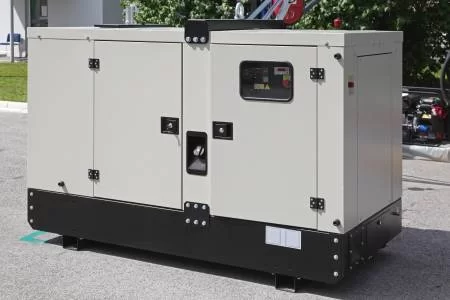Generator Solution
Generators are essential for providing backup power during outages and supplying electricity to remote locations. They come in various types, each serving different functions and sectors. Here’s a breakdown of common types of generators and the services they provide:
Types of Generators
1. Portable Generators
- Description: Small, mobile generators that use fuel (typically gasoline or diesel) to produce electricity.
- Best For: Temporary or emergency power in homes, small businesses, camping, and construction sites.
- Power Output: Usually between 1,000 and 10,000 watts.
- Services Provided: Power for essential appliances, lights, and tools during temporary power needs.
2. Inverter Generators
- Description: Lightweight and quieter than conventional portable generators, they provide clean, stable power, safe for sensitive electronics.
- Best For: Camping, outdoor activities, and powering electronics.
- Power Output: Typically 1,000–4,000 watts.
- Services Provided: Clean, stable electricity suitable for electronics, phones, laptops, and small appliances.
3. Standby Generators
- Description: Permanently installed generators that automatically provide power during outages, often fueled by natural gas or propane.
- Best For: Homes, businesses, and healthcare facilities requiring uninterrupted power.
- Power Output: Ranges widely from 7,000 watts to 150 kW (residential) or up to several megawatts for commercial.
- Services Provided: Automatic backup power, covering everything from essential circuits to full-building needs depending on size.
4. Diesel Generators
- Description: Heavy-duty generators powered by diesel, ideal for extended use and high-power requirements.
- Best For: Industrial, construction, hospitals, and commercial facilities.
- Power Output: From a few kW up to several megawatts.
- Services Provided: Reliable power for long-term use, especially for heavy equipment or critical facilities.
5. Gasoline Generators
- Description: Standard fuel-powered generators, easy to operate but best for short-term use due to fuel costs and availability.
- Best For: Home use, outdoor events, and emergency backup for short durations.
- Power Output: Generally from 1,000 to 10,000 watts.
- Services Provided: Basic backup power for homes and small equipment; popular for recreational activities.
6. Natural Gas Generators
- Description: Generators that run on natural gas, typically connected to the home or building’s natural gas supply.
- Best For: Homes and commercial settings with access to a natural gas line.
- Power Output: Typically 7 kW to 500 kW or more.
- Services Provided: Continuous backup power without the need for fuel storage.
7. Solar Generators
- Description: Use solar panels to charge a battery, providing renewable, eco-friendly power with no emissions.
- Best For: Homes, small businesses, camping, and remote areas with ample sunlight.
- Power Output: Typically limited compared to fuel-powered generators, usually around 100–2,000 watts.
- Services Provided: Clean energy, ideal for light loads like phones, lights, and small appliances.
8. Hydrogen Generators
- Description: Newer technology, using hydrogen fuel cells to generate electricity with water as the only byproduct.
- Best For: Environmentally conscious applications, research, and future commercial settings.
- Power Output: Can vary widely but generally used for specialized applications currently.
- Services Provided: Clean, emission-free power, still in development for wider commercial use.
Services Provided by Generators
Emergency Backup Power
- Provides power during unexpected outages, essential for homes, hospitals, and businesses that rely on continuous operation.
Continuous Power Supply
- For areas without a stable power grid, such as remote sites or developing regions, generators offer a primary power source.
Power for Events and Outdoor Activities
- For events, camping, or outdoor worksites, portable generators deliver the needed power for lighting, sound systems, cooking, and equipment.
Standby Power for Critical Infrastructure
- Facilities such as data centers, telecommunications, and emergency response centers use generators to ensure no downtime in case of grid failure.
Renewable Energy Backup (Solar)
- Solar-powered generators offer a clean and renewable option for backup or off-grid needs, especially where environmental impact is a concern.
Industrial and Construction Support
- Diesel and natural gas generators power heavy machinery and tools on construction sites and industrial facilities without grid access.
Remote Medical and Research Applications
- In off-grid locations, generators provide power for medical equipment, research stations, and labs, where electricity is essential for operations.
Generators are vital across various fields, providing reliable power solutions tailored to specific requirements, from emergency home use to industrial-scale applications.

